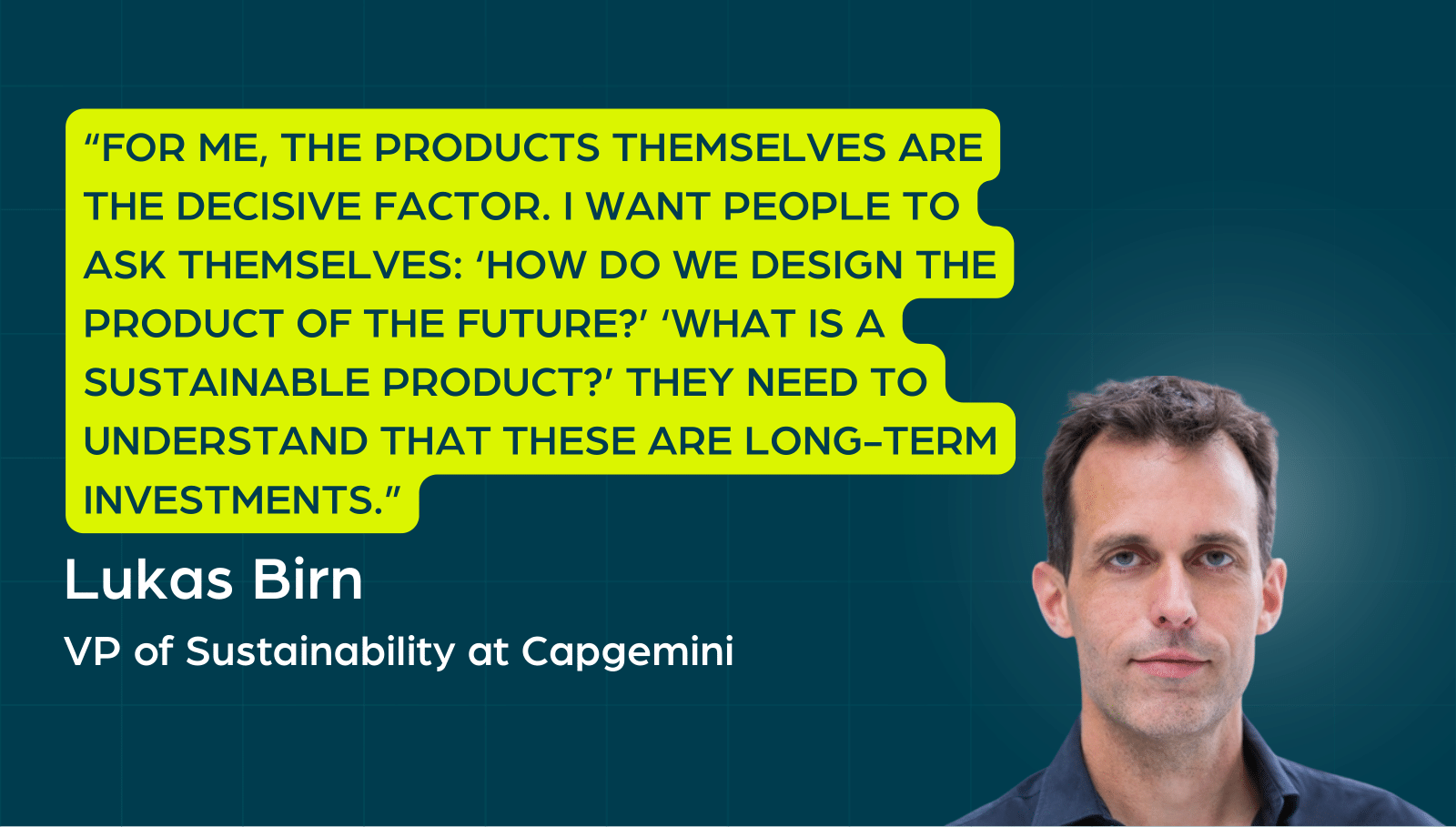New SEC-regulation proposal
The United States Securities and Exchange Commission (SEC) has been encouraging companies to disclose their climate-related risks since 2010. With their newly proposed regulation, the SEC takes a big step towards more accountability and transparency in the market.
Note: 6th March 2024 update.
The US SEC met to vote on the proposed regulation on Wednesday 6th March 2024, with SEC Chair Gary Gensler saying that he expected companies and investors to benefit from the new rules that formalize a system that has allowed companies to produce climate related information on their own terms.
He stated: “Our vote today is on rules, not just guidance like we had in 2010 but on actual rules and ones that require disclosures. Bringing them into such filings I think will help make them more reliable.”
Gensler continued: “I’m pleased to support this adoption because it benefits investors and issuers alike. It would provide investors with consistent, comparable, decision-useful information, and issuers with clear reporting requirements.”
Previously, companies only disclosed their climate impact information on a voluntary basis. There has been no standardised way to report climate data, and many companies used different metrics or chose not to report at all.
SEC documents show that the disclosure will require companies to share how climate conditions affect their business strategy, operations, and financial condition.
Their reported information must include direct emissions like manufacturing and indirect emissions like energy use, but companies will not be required to report emissions from supply chains and product consumers (which we were part of the original proposal, but not adopted).
………………………………………………………………………………………………………
The United States Securities and Exchange Commission (SEC) has been encouraging companies to disclose their climate-related risks since 2010. However, publishing this data has been voluntary, making it easier for companies to either avoid it or also to palliate their data, for example when stating ambitious Net Zero goals. With their newly proposed regulation, the SEC takes a big step towards more accountability and transparency in the market.
What does the regulation entail?
The regulation proposal released by the SEC on March 21st would require U.S.-listed companies to disclose a range of climate-related risks and greenhouse gas emissions. In more detail, companies would have to reveal their scope 1 and 2 emissions with an auditing requirement. But it does not stop there: The proposal would additionally oblige companies to disclose the greenhouse gasses generated by suppliers and partners, known as scope 3 emissions. The latter only being the case if the emissions are material or included in emission targets the company has set.
Whom will the regulation affect?
All public companies with an existing SEC reporting requirement would have to follow the new regulation. While private companies are normally exempt from SEC filing rules, many of them are already on the path to an initial public offering (IPO). They often already begin filing in preparation and will therefore likely be asked by their investors to include this data.
When will the regulation come into place?
The SEC is planning a phased implementation. Larger organizations would have to comply with the regulation by 2023, while smaller ones would have time until 2024 to follow. The SEC knows that certain parts of the regulation are a great challenge for many listed companies, especially when reporting scope 3 emissions. That’s why their current proposal does not oblige companies to calculate their scope 3 emissions by Greenhouse Gas Protocol (GHG) standards. Instead, companies are asked to choose a methodology that fits their portfolio and financing activities best. The methodology must be part of the filing.
Challenging times ahead
Complying with the new SEC regulation proposal could cause some serious challenges for big and small companies. Makersite’s experts listed the four most striking problems the ruling could cause.
Free methodology: It’s a trap
As mentioned earlier, the SEC, in an attempt to make things easier, leaves open the methodology for reporting scope 3 emissions. While this is in good intention, it likely makes life even harder for the affected companies. Without a clear map of what and how to report these emissions, the already hard to manage scope 3 topic gets even more complicated. (read more on the most common mistakes with scope 3 here)
If you’re doing it wrong there are legal consequences
Even companies that already published their emission data voluntarily will be put under a lot more pressure if the regulation comes into place. If the reported data is incorrect, companies are in active danger of facing legal consequences. While companies might be confident about their scope 1 and 2 reports, they are dependent on their supplier’s data when it comes to scope 3. And while the SEC claims that they included a safe harbour for liability for incorrect scope 3 data received by suppliers, claiming and defending a safe harbour exemption occurs only after a lawsuit has been filed.
It’s expensive – for all parties
Implementing compliance and more accurately measuring emissions will not come cheap. Reporting on scope 3 data is likely uncharted territory for many companies. To be able to publish the requested data and to validate scope 1 and 2 data, companies will have to consider working with outside providers. The costs for companies, as well as to the SEC itself, will be in the tens of millions.
If you’re thinking you won’t be affected, you might be wrong
Normally the proposed rule would only affect companies regulated by the SEC. But, the transparency requirements for scope 3 emissions might also affect a lot of private companies. As SEC-regulated companies will have to report their own scope 3 emissions, the emission data of suppliers will become more important to them. Private companies might feel more pressure or could even be required by their business partners to report their scope 1 and 2 emissions as a result.
What’s important now
While it is still unsure how exactly the SEC regulation will come into place after being discussed, companies would be foolish to wait it out. More and rigorous emission regulations are coming into place all over the world. It is only a question of time until scope 3 reporting, for example, will be mandatory for companies. Countries worldwide have committed to emission targets and their effects will, sooner or later, reach the industry. Companies that already take voluntary action will thrive alongside compliance with solid regulations, while companies that didn’t will be left behind.
But what steps can companies already take to be prepared for the future? Makersite’s experts put together four steps:
Find out what you’re missing
The so-called gap assessment will help you to find out what data you’re missing to comply with the regulation. The first step is to check what data is available in-house and if the data is easily accessible for stakeholders. At the end of the assessment, you should be able to put an inventory of climate-related data you can already collect against what data the rule requires and act on the differences.
Find out what you’ve been doing wrong (and right)
In the process, it is not only important to check what data you’re missing, but also to re-evaluate the approach of data collection and the way you’re using it. Is your sustainability reporting scalable and cost-effective? Did you put up Net Zero goals and can they be backed up with trustworthy data? How long will it take to have a full scope 3 reporting across all products?
Find your internal stakeholders
Within the team’s procurement, product management and product design sit your key stakeholders for reduction initiatives. To be able to move forward with the emission goals you need to identify these stakeholders and find out what they need to work efficiently. Understanding your companies’ ability to cost-effectively oversee a robust Environmental Social Governance (ESG) reporting requirement while ensuring compliance and progress is an essential first step.
Find the fitting external support
Scope 3 reporting is special: The vast majority of data you need does not sit within your company. Tools are invaluable for saving time, increasing credibility for auditors and most importantly, critical to doing something meaningful with the data you are collecting. That’s why it is important to find out now how the fitting tools can help you to report on existing and future products at scale.
The reporting obligations of the future are a complex issue that will take companies a long time to solve. Starting now will put your company ahead of others and help you prepare for prospective challenges.
If you’d like help getting ready for the new regulations. Speak to our sustainability experts today.


